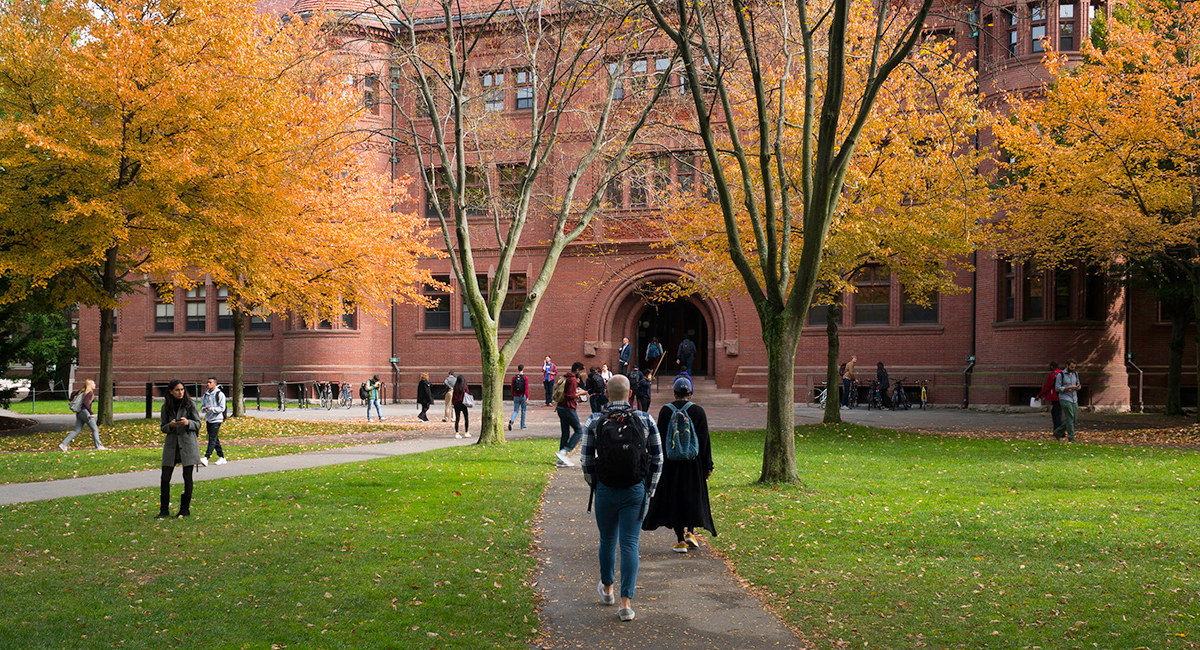The evidence is undisputable that American higher education is in trouble. Enrollments are down. Costs of educating students are much higher than in other industrialized democracies. Employers frequently complain that their new college hires are inadequately prepared. Public confidence in institutions of higher learning has plummeted, especially among conservatives, but even some among other groups. Despite king-sized bailouts and federal financial support, the financial status of many colleges has become somewhat shaky.
Yet recently, without spending a penny, an arm of the federal government may have triggered the beginning of a revival in confidence in our colleges. Universities cannot live by bread alone—in any case, not in the “bread” received from tuition revenues provided by student customers. They are critically dependent on third-party support—mostly that from the government through state subsidies, Pell Grants, student loans, federal research grants, etc., but also support through private financial contributions and associated endowments.
Public satisfaction with colleges has plummeted, endangering not only enrollments (and related tuition fees) but also critical third-party support. The potential savior? The United States Supreme Court, as a consequence of its Students for Fair Admissions v. Presidents and Fellows of Harvard College decision and the companion case involving the admissions practices of the University of North Carolina. Both uprooted the woke consensus on campuses. In doing so, they may signal the beginning of an era of adult Real World supervision of colleges, forcing them to retreat from woke excesses that have so alienated them from much of the American public.
‘Holistic’ Admissions Is Code for Race-Based Admissions
What should intelligent university presidents do now? Proclaim loud and clear that “Our university is moving vigorously to comply with the Supreme Court decision and remove any consideration of race in making decisions relating to admissions, hiring, or contracting. We are removing the collection of race data from admission or hiring applications. At the same time, we remain committed to having a university community rich in diversity, both economic (including students from widely varying financial and family circumstances) and intellectual, encouraging varying viewpoints on the issues of the day.”
Many presidents, of course, conscious of the campus wokedom significantly governing their decision-making, will resist this, sounding a bit like the diehard segregationists after the Brown v. Board of Education of Topeka 1954 decision, plotting how they can use, for example, student application essays to discern who has the desired skin color. We are hearing more talk of “holistic” admissions—replacing emphasis on objective measures of academic performance such as grades and standardized test scores (SAT or ACT). In other words, let admissions officers use their subjective assessments to pick the entering classes with the goal of achieving racist objectives.
Holistic admissions led to the anti-Jewish practices in the Ivy League nearly a century ago, as well told by Jerome Karabel in The Chosen: The Hidden History of Admission and Exclusion at Harvard, Yale and Princeton (2005) or, almost simultaneously, by Daniel Golden in his magnificent book The Price of Admission: How America’s Ruling Class Buys Its Way Into Elite Colleges—And Who Gets Left Outside the Gates. What is desperately needed is a return to objective (albeit imperfect) admissions criteria, stressing performance and potential—as measured mainly by grades and performance of widely recognized tests like the SAT. The recent cry to end legacy admission preferences is driven less by a desire to promote higher academic standards than by a desire to modestly promote minority admissions, since most legacies are white.
Colleges That Ignore Race Will Do Better
My guess is that in the long run, the schools who, perhaps grudgingly, move to follow the Supreme Court decision most faithfully by completely ignoring race as a factor and by avoiding all sorts of dubious contortions to evade it, will end up ahead—getting the best and brightest students, winning the most Rhodes Scholarships and other signs of academic distinction, manifested in improvement in the much hated (by universities) but loved (by everyone else) rankings of colleges by organizations like U.S. News & World Report. Schools like Cal Tech, which emphasizes academic achievement, will gain relative to ultra-woke Eastern elite colleges resisting change.
In the long run, then, I think as the rationale for big DEI bureaucracies becomes dubious, schools will eventfully reduce staff hired for their wokeness, maybe even shoring up academic offerings or lowering their tuition fees. Schools will return somewhat to emphasizing Job One: offering a superior education for students, trying to maximize the value added to their human capital during their years at college. Public support for colleges will slowly rise again, moderating further demographically induced enrollment declines.
The Supreme Court ruling, of course, follows a big rise in state governmental actions relating to state universities, such as outlawing or limiting DEI initiatives (Texas) or the creation of distinctly anti-woke university enclaves promoting the American heritage and constitutional democratic traditions in many states (e.g., Tennessee, Florida, Texas, and Ohio). While university constituencies lament these developments, they upend a leftish status quo largely responsible for the declining public support of our colleges. Even in liberal states like California and Washington, the electorate has resoundingly rejected racial referencing.
The Supreme Court has starkly revealed the disconnect between the Real World and the Ivory Tower and hopefully reminded those both inside and outside of academia that no university is an island unto itself; America’s preeminence in higher education came from promoting academic excellence, not from fashionably woke notions based on values hostile to traditional American values; and the tradition that success in America is based on accomplishment, not family background, race, or other extraneous attributes.













